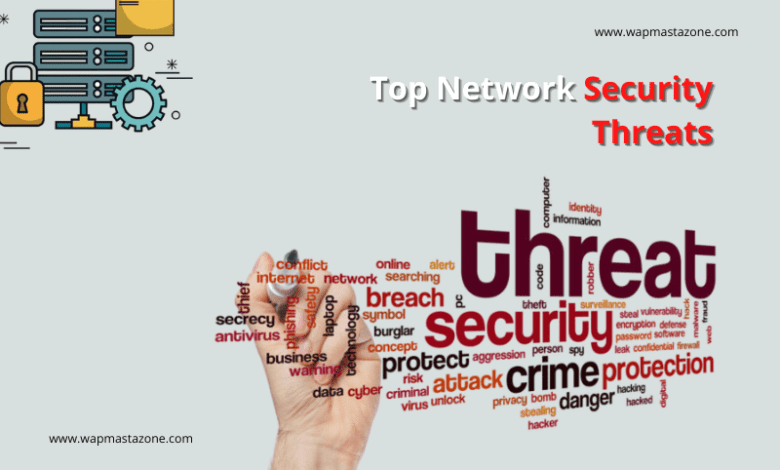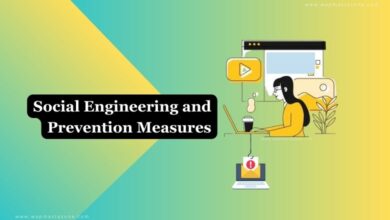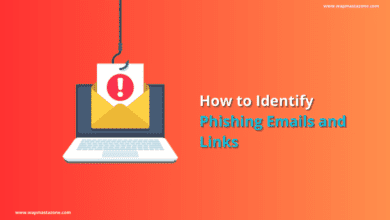Top Network Security Threats to Watch Out For in 2024
network security threats,

What are the Internet and network Security Threats to Watch out for? Every year brings about new online security threats, ranging from remote hacking, viruses, and worms to Trojans and skimmers. You should be more concerned about cybersecurity since you could suffer losses amounting to thousands of dollars if your systems are not secure. One of the world’s most critical concerns is cybersecurity given that the safety of half of the world’s population and billions of dollars are on the line. The news cycle in 2015 showcased massive cyberattacks perpetrating both people and corporations in everything from retail hacks to identity theft. It is highly likely that 2016 will see an increase in such attacks; as such, let’s take a look at the most critical online security threats to watch out for in 2016.
Related: Password Security Check – 6 Ultimate Password Safety Tips
Also read: 12 Amazing Facts About Computer & Internet you Should Know
Network Security Threats – Top Network Security Threats to Watch Out For
1. Public Networks
Like last year, public networks are still unsafe and vulnerable to hackers seeking to access your private data. The most basic of hacker programs can easily intercept data on public networks if you do not take adequate measures to protect yourself.
However, you do not have to avoid public networks altogether. I recommend using a Virtual Private Network (VPN) when accessing the internet through public networks. A VPN works by encrypting your connection and routing it through a secure offsite server, thus making it nearly impossible for hackers to intercept your data.
2. Extortion Hacks/Ransom Attacks
Extortion hacks usually deploy malware that locks out or decrypts your computer until you pay a ransom. The hackers then threaten to release sensitive customer or company data if you do not meet their demands or pay a specified amount of money. The news that the Poseidon hacker group has been involved in strategic infiltration of systems should make you wary. The group would send phishing emails that had malware hidden in documents. These would steal not only commercial information but also personal data that would later be used to blackmail the victim.
We will likely see more of the same type of hacker shakedowns this year given that hackers are developing sophisticated ransomware, such as Cryptolocker—a software that sends executable malware through files in emails—hacking into your devices and taking them ransom has never been easier. With Ransomware as a Service (Raas) being so user-friendly, readily available, and as cheap as $100 on hacker forums and discussion boards these attacks will be on the rise in 2016.
Also Read: 10 Signs of a Malware Infection on your Computer
Related: 14 Types of Hackers and How to Prevent Hacking
3. Attacks that Change or Manipulate Data
An attack that manipulates or changes data is one of the biggest nightmares you will have to contend within 2016. This kind of data sabotage has more sophistication and can have far-reaching consequences for data security. Hackers could easily get access to your devices to subvert or alter the integrity of your financial and identity data without you ever being aware.
As law enforcement enhances its capabilities to fight online hackers, hackers will, in turn, up to their game. In 2016, ghostware, commonly known as rootkits, is becoming the more prevalent means that cybercriminals use to hack into machines. They are so popular since they have the capacity to enter devices, steal or alter information while remaining undetected. You get ghostware when you install new software from unknown and untrusted sources. With ghostware, it will be almost impossible to determine how much of your data has been subject to sabotage. Since attackers are increasingly coming up with ways to avoid preventative systems, response and detection will be more critical for your online security.
4. IOT Zombie Botnet
IOT Zombie botnet is a new method of hacking that takes control of unprotected devices and uses them to gain access to connected protected devices that are hard to access directly. According to a Gartner research, 2016 will see a 30 percent increase in the number of connected devices worldwide, reaching around 6.4 billion devices. This number of connected devices (known as the Internet of Things) is a huge opportunity for hackers who can now take control of numerous devices from a single one. With such a large number of connected devices, corporate and consumer information is at risk. Given that it is highly unlikely that you prioritize the security of your connected devices such as medical devices, cars, fridges, and Barbie dolls, your sensitive data is highly vulnerable.
While 2015 was the year when hackers were in the process of testing out the viability of using IOT Zombie botnets for hacking several devices, 2016 is the year when these concepts will become reality. You should expect more instances of attacks that take control of devices such as home automation systems, smart TVs, and CCTV surveillance cameras rather than just your laptop. Unlike the laptop or desktop computer, it will be hard to know if your smart TV is part of a hacker’s botnet army, and hence, vigilance is important.
Also Read: What Search Engine did People Use before Google?
5. Retail Data Hacks
Though retail data hacks are not a new thing, you should expect to see a rise in retail hacking in 2016. Major retailers will primarily be attacked for the payment information of their customers. The switch to EMV chip technology will make it harder to attack mobile payment systems and chip terminals. As such, it is highly likely that your data will be vulnerable when using poorly secured systems that have not yet upgraded to the new technology.
Retail hacks can affect almost anyone given that they target large companies, such as Target or Amazon, which many consumers use on a regular basis. Cybercriminals use the stolen data to steal your identity that they then sell on the black market. Therefore, even though your retailer is responsible for keeping their payment systems secure and up to date, it is critical to carefully monitor your credit card statements and bank accounts to report and prevent abuse or theft of your personal data or identity.
6. Corporate Data Hacks
In 2015, the hacking of Anthem was one of the largest stories on the news as it involved the data of 78 million people. The UCLA Health Systems Computer database experienced a data breach potentially exposing the data of 4.5 million patients to identity thieves. Fifteen million customers had their data stolen from Experian servers, and Vtech’s inadequate systems resulted in the release of the private information of thousands of children and millions of people. With weak security systems and high demand for corporate data on the black market, corporate data hacks will continue to be common in 2016.
While many organizations have secure systems for protecting data, you need to be careful which companies you give access to your sensitive information. It is critical that you take control of your security habits by following recommended security protocols to prevent identity theft. Always be up to date on data breaches, particularly those of companies that you deal with more often. Doing so will allow you to take action to protect your information from use by cybercriminals.
Also read: 10 Best Freelance Websites to Find Online jobs in 2021
7. Jailbreaking the Cloud
The increased reliance on hybrid and private clouds and virtualization will result in more attacks on these systems in 2016. There will be a proliferation of attacks on virtual machines and cloud infrastructure. Cybercriminals are actively building malware to target cloud infrastructure through client-side device vulnerabilities.
Given that many apps rely on cloud infrastructure, many mobile devices that you use may be the targets for malware. Mobile devices that run outdated and compromised apps are easy gateways that hackers may use to access and attack private and public clouds. As such, it is vital to keep your apps updated and secure your mobile devices through encryption services such as a VPN.
What online security precautions are you taking in 2016? Share in the comments below so that we can ensure the internet is a safe place for all of us.
What More? We Recommend: Best Virtual Private Network Providers
Cover your internet tracks by using VPN
| Best VPNs | Categories | Websites |
|---|---|---|
| VPN/Internet Security | https://www.securi.net/ | |
| VPN/Internet Security | https://www.cyberghost.com/ | |
| VPN/Internet Security | https://privadovpn.com/ | |
| VPN/Internet Security | https://atlasvpn.com/ | |
| VPN/Internet Security | https://www.avast.com/ | |
| VPN/Internet Security | https://www.ipvanish.com/ | |
| VPN/Internet Security | https://www.avg.com/ | |
| VPN/Internet Security | https://nordvpn.com/ | |
| VPN/Internet Security | https://www.expressvpn.com/ | |
| VPN/Internet Security | https://www.norton.com/ |
Also check: 15 Best Free VPN for Android, iPhone and Computer Users
This article was written by Jen Martinson . She’s the editor-in-chief for securethoughts .



